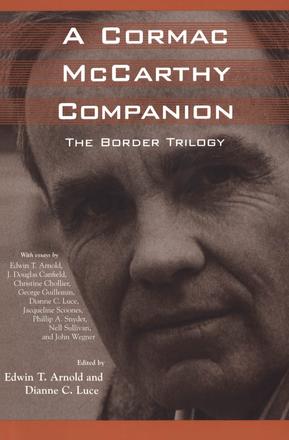
A Cormac McCarthy Companion
The Border Trilogy
The first book to examine McCarthy’s three masterpiece novels as a cohesive whole
Description
With essays by Edwin T. Arnold, J. Douglas Canfield, Christine Chollier, George Guillemin, Dianne C. Luce, Jacqueline Scoones, Phillip A. Snyder, Nell Sullivan, and John Wegner
The completion of Cormac McCarthy's Border Trilogy--All the Pretty Horses (1992), The Crossing (1994), and Cities of the Plain (1998)--marked a major achievement in American literature. Only ten years earlier this now internationally acclaimed novelist had been called the best unknown writer in America.
The trilogy is McCarthy's most ambitious project yet, composed at the height of his mature powers over a period of fifteen years. It is "a miracle in prose," as Robert Hass wrote of its middle volume, an unsentimental elegy for the lost world of the cowboy, the passing of the wilderness, and the fading innocence of post--World War II America. The trilogy is a literary accomplishment with wide appeal, for despite the challenging materials in each book, these volumes remained on bestseller lists for many weeks.
This collection of essays is the first book to examine these novels as a trilogy, the first to read them as an integrated whole. Together these explorations of McCarthy's magnum opus serve as an ideal companion reader.
Represented here are nine of the most notable Cormac McCarthy scholars, both American and European. Their essays provide a substantial exploration of the trilogy from different perspectives. Included are gender issues, eco-critical approaches, explications of the war or land history underlying the trilogy, studies of narrative voice, dreams, the cowboy tradition, and the pastoral tradition, and considerations of McCarthy's moral and spiritual outlook. These essays complement one another in highly provocative ways, prompting new appreciation of the complexity of McCarthy's work and the profundity of his vision.